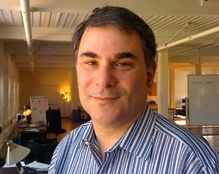 If Boston, NYC, and San Francisco are the top three U.S. innovation cities why do their economic, education, health care, and energy systems produce the same poor results as cities around the rest of the country? I read the recent Top Innovation Cities of the Global Economy report from 2thinknow ranking the top 100 global innovation cities with great interest. Of course I quickly scanned the rankings to see which U.S. cities made the list. While I was disappointed my hometown of Providence, Rhode Island didn’t make the cut I was pleased to see our neighbor Boston was ranked number one. Two other U.S. cities joined Boston in the top ten, NYC ranked fifth and San Francisco ranked seventh.
If Boston, NYC, and San Francisco are the top three U.S. innovation cities why do their economic, education, health care, and energy systems produce the same poor results as cities around the rest of the country? I read the recent Top Innovation Cities of the Global Economy report from 2thinknow ranking the top 100 global innovation cities with great interest. Of course I quickly scanned the rankings to see which U.S. cities made the list. While I was disappointed my hometown of Providence, Rhode Island didn’t make the cut I was pleased to see our neighbor Boston was ranked number one. Two other U.S. cities joined Boston in the top ten, NYC ranked fifth and San Francisco ranked seventh.
Seems logical to ask if the top ranked innovation cities are delivering more value to their citizens or making more progress on the big social challenges of our time than other cities. What’s the point of innovation if not to deliver value and solve real world problems?

After barely scratching the surface of examining output measures the obvious question is this, if Boston, NYC, and San Francisco are the top U.S. innovation cities why are their poverty rates so high? Why are their education attainment levels so low? If these cities are innovation hot-spots and models for the rest of the country shouldn’t they deliver better economic opportunity, and better education, health care, and energy solutions, as well as a better quality of life to their citizens? I thought innovation was about delivering value and solving real world problems.
Maybe the ranking is really more about invention than innovation. Maybe we are too focused on measuring the inputs of innovation and not the outputs. I believe far too much attention and resource is focused on the inputs versus the outputs of innovation. There are more ideas and new technologies than we could ever use or implement. There are too many inventions stuck in the garage or lab and concepts stuck on the whiteboard. We need to get more ideas and solutions off of the white board and in to the real world. The imperative is more real world experimentation. We need to try more stuff to see what works and is scalable. We have the inputs for innovation at our disposal. Our focus needs to shift to the outputs. It isn’t an innovation until value is delivered. Innovation should be measured based on outcomes. Are there proof points that the solution works in the real world and at scale? We need to invest more in platforms and tools to enable new model and system level experiments. We need to invest in and organize safe zones where we can try new approaches in the real world designed around the end user.
We have bought in to a national invention narrative and haven’t been successful at replacing it with a compelling innovation story. Inputs are not as dependent on messy collaboration across silos and organizations as outputs. Inputs are easier to measure than outputs. Most importantly we are wired to focus on inputs and uncomfortable being held accountable for outcomes. Innovation capacity and metrics need to be more about the outputs.
We are blessed in the U.S. with an incredible concentration of inputs for innovation. In Boston, NYC, and San Francisco, as well as in many other cities across the country, we have many of the world’s best colleges and universities and a hard-wired spirit for discovery and entrepreneurship. We must develop an innovation story that is about better outputs and solutions. Why not organize our community innovation strategies to deliver real transformation in our health care, education, energy, and entrepreneurship systems? If we did, cities would be better positioned to deliver on the promise of technology for patients, students, entrepreneurs, and citizens. Let’s turn our cities into innovation hot-spots and measure progress based on outcomes.









Leave a Reply